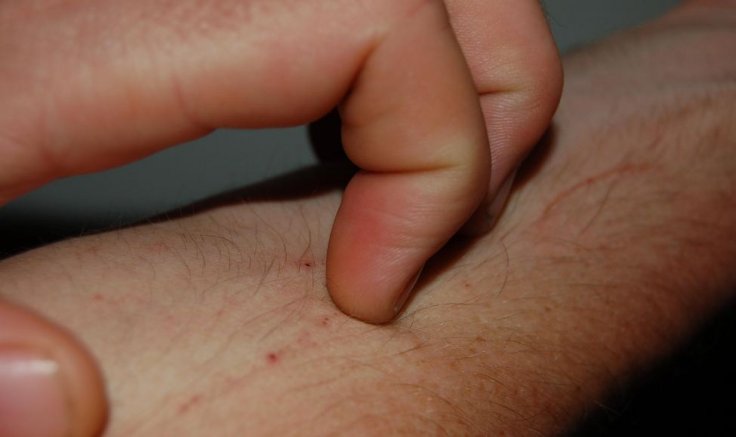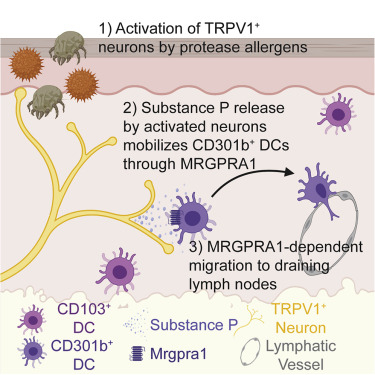For most people struggling with allergies, a nasty itch accompanying it is almost a given. While it is known that allergens act as triggers, not much is known about how the immune system detects them and leads to the inflammatory reaction. Now a study has found that a neuropeptide, a protein produced by neurons, plays a key role in the allergen-induced immune responses.
According to scientists from the Massachusetts General Hospital, certain neurons in the skin release a neuropeptide known as 'Substance P' when they detect allergens. This substance plays an important part in the development of immune responses. "Now we know that sensory nerves link allergen exposure to immune activation," said Dr. Caroline Sokol, lead author of the study, in a statement.
Unknown Allergy Mechanism

The steps involved in the response of the immune system to pathogens are well researched and understood. However, the manner in which the immune responses are generated towards allergens such as animal fur, dust mites, and pollens, among others, are less understood. Dendritic cells(DCs)—cells responsible for the initiation of immune actions—trigger T-cells that are required for immune responses.
"The focus has been on dendritic cells and T cells, which play a major role both in allergies and in protecting the body from pathogens, such as viruses, bacteria or fungi," expressed Dr. Sokol. Until now, researchers were not aware of all the steps between exposure to an allergen to the progression to itching. This is the important gap that the current study manages to fill.
Filling Missing Gaps

The research team learnt that dendritic cells that trigger allergies are located right next to neurons in the skin that are responsive to allergy. Upon being exposed to allergens, the neurons released Substance P. This neuropeptide directly induces the migration of the dendritic cells known as CD301b+ DCs, to the lymph nodes. At the lymph nodes, the dendritic cells activate T-cells, which in turn lead the attack against the invading allergens.
This chain of events was studied in both isolated cells as well as living systems. "We saw that something was happening in living systems that doesn't happen in cultured dendritic cells. So we hypothesized that in living systems there must be some intermediate step between exposure to the allergen and activation of the dendritic cells," explained Sokol.
To prove their hypothesis, they first demonstrated that sensory neurons can detect allergens both in isolated cells and in mice. Next, they showed that CD301b+ DCs are found in the proximity of sensory neurons together. When considered concurrently, the findings indicated that the role of sensory neurons in the activation of immune cells in reaction to allergens was a crucial one.
Role of Neurons In Immune Response

Using additional studies, the authors also showed that when allergy-sensing neurons in mice were chemically blocked, the activation of an allergic reaction was interrupted. They also demonstrated that allergen-activated neurons in both cultured cells, as well as living systems, released Substance P.
It was also found that Substance P, on its own, could trigger particular kinds of dendritic cells required to activate the T-cells and conclude the allergic response. Finally, the researchers also illustrated that when the sensory neuron function was blocked, it inhibited the mobilization of T-cells linked to the allergic reaction.
According to the authors, this revolutionary discovery provides an improved understanding of the immune system and presents new opportunities for the formulation of new therapies to tackle allergies. "This sensory-neuron-dependent pathway, and Substance P, are necessary to trigger an immune response to allergens. If we can interrupt that we can possibly stop the allergic immune response," concluded Sokol.









